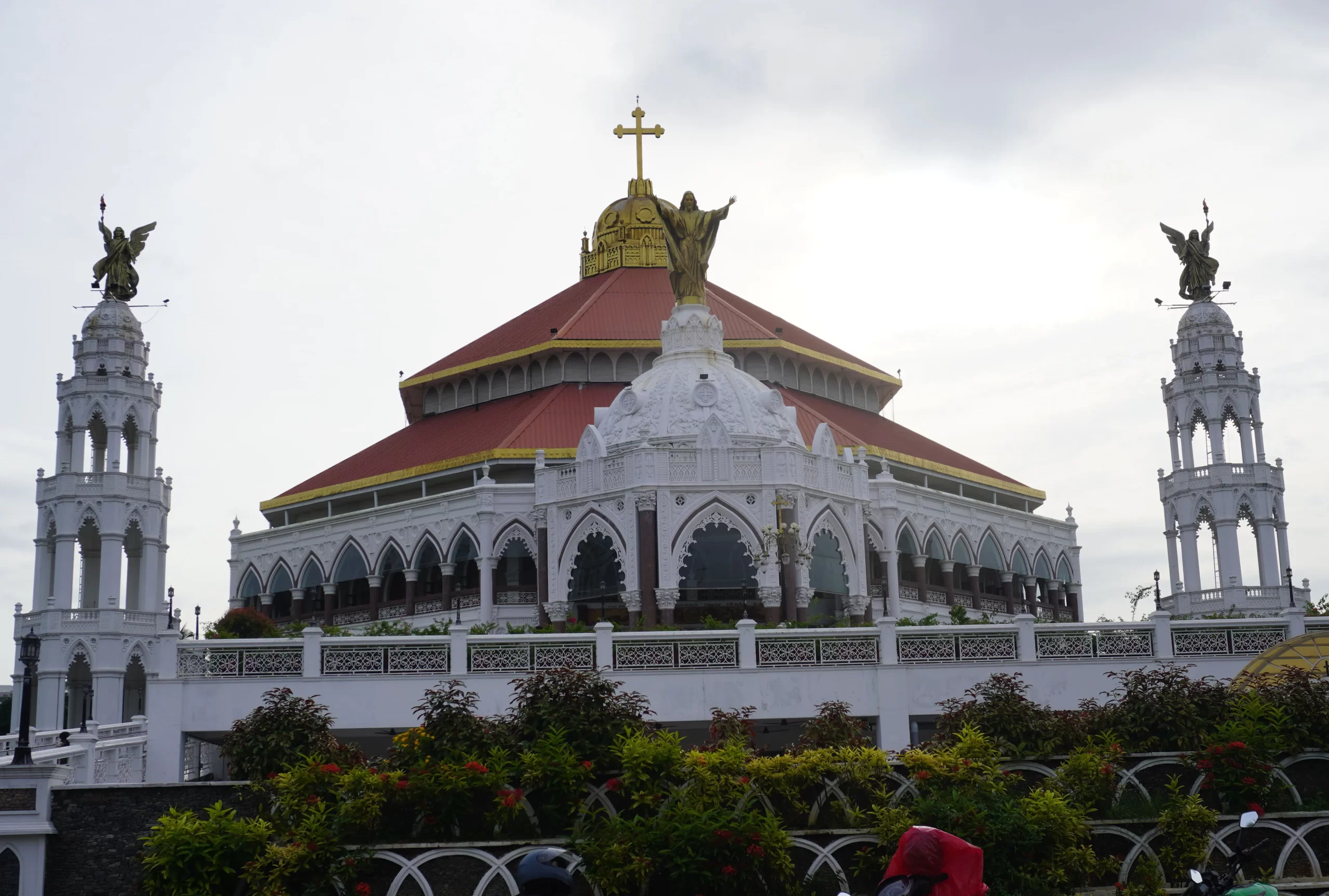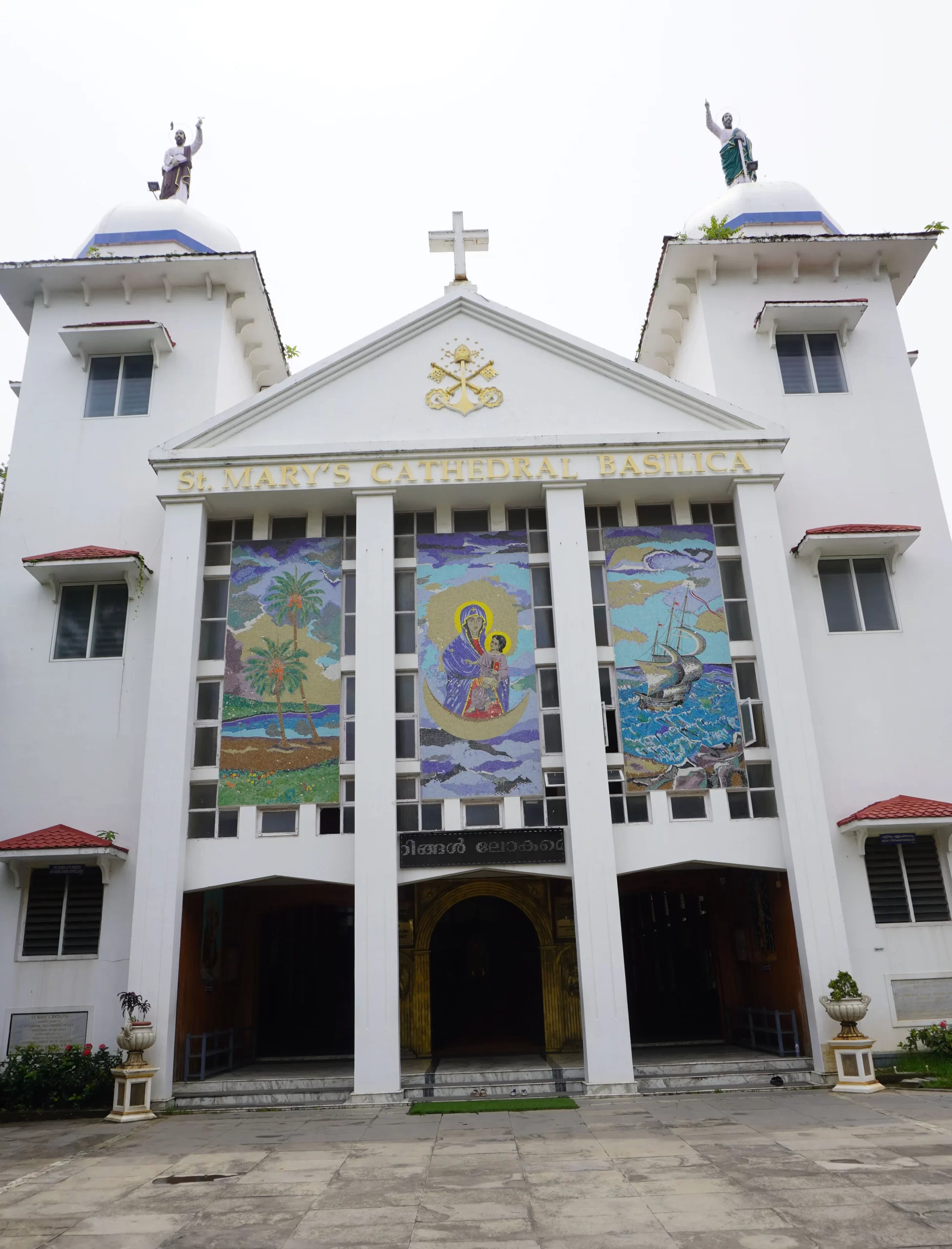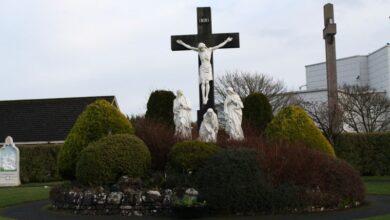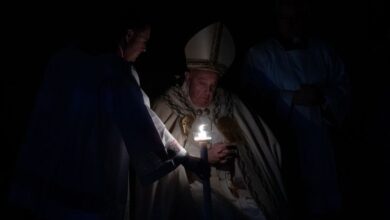Syro-Malabar Church in India initiates plan to resolve bitter liturgical feud

 A synodal Mass in progress at St. Dominic Church at Aluva in the Ernakulam Archdiocese of the Syro-Malabar Church on July14, 2024. / Credit: Anto Akkara
A synodal Mass in progress at St. Dominic Church at Aluva in the Ernakulam Archdiocese of the Syro-Malabar Church on July14, 2024. / Credit: Anto Akkara Kochi, India, Jul 17, 2024 / 14:50 pm (CNA).
The simmering liturgical feud over the implementation of the synodal Mass that came close to the issuing of excommunications in the Ernakulam Archdiocese of the Syro-Malabar Church (SMC) in India has subsided with a “compromise” on July 3, the feast of St. Thomas, patron of the SMC.
“The Holy Qurbana [Mass] should not be the reason for division in the Church,” Father Antony Vadakkekara, SMC spokesperson, told CNA on July 16.
“That is why the [SMC] synod made the compromise proposal to say at least one synodal Mass in each of the parishes.”
Trouble started brewing in the archdiocese after the SMC synod in August 2021 mandated the synodal Mass, also known as the “uniform Mass” in which the priest turns toward the altar with his back to the congregation after the offertory prayer. The priests of the Ernakulam Archdiocese rejected this and continued to say Mass facing the people throughout the liturgy.
Synodal and papal exhortations led to protests from the clergy and laypeople, culminating in Pope Francis issuing a deadline for the synodal Mass to be implemented beginning on Dec. 7, 2023, in a video message to the archdiocese.
Heeding this papal advice, the synodal Mass was put in place on Christmas 2023, but the overwhelming majority of the 450 priests of the archdiocese objected to it. A pastoral letter was then issued by the archbishop on June 14 with threats of excommunication and a July deadline.
“Priests who do not obey our decision from July 3 will be treated as those who have left the Catholic Church fraternity. Such priests will be barred from offering holy Mass in the Catholic Church from July 3,” cautioned Major Archbishop Raphael Thattil, who heads the SMC Synod, in the pastoral letter.
The letter evoked strong protests on June 16, a Sunday. Besides being “unread” in most of the 330 parishes in the archdiocese, several parishes witnessed unprecedented protests such as the burning of the pastoral letter, dumping it into wastebaskets, and throwing it into bodies of water around the churches.
With tension mounting ahead of the July 3 deadline, Thattil and the apostolic administrator of Ernakulam, Bishop Bosco Puthur, rushed to hold meetings with priestly bodies and arrived at a plan made public July 1.

Calling for at least one synodal Mass to be celebrated in each of the parishes on Sundays and other obligatory days, the plan allows the continuation of the existing liturgy facing the people. The statement also says that the key presbyterial body and pastoral council will be consulted before the SMC Synod makes further decisions on the matter.
“It was a big breakthrough, and it is working,” Vadakkekara said. “July 3 compliance [for the synodal Mass] was over 50%. On July 7, Sunday, 75%. The situation should improve from here onward.”
“We are happy that Major Archbishop Thattil brought out a very positive formula. We readily accepted it,” Father Jose Vailikodath, spokesperson for the Archdiocesan Protection Committee (APC), told CNA.
“We had no intention to disobey the Church leadership but we wanted the Church to acknowledge our opposition to the synodal Mass due to historical reasons. Now, the ice is broken. We pray the feud is behind us for good,” Vailikodath said.
“We are glad that there was not a single problem in any parish on Sunday. That is a good sign. Hope it is a new beginning,” Riju Kanjookaran of the laity movement, who led several protests, told CNA.
Despite fears of disruptions, nothing was reported from the archdiocese when one synodal Mass was held in most of the parishes.
“We decided to have the synodal Mass for the evening — the fourth Sunday Mass,” Father Joseph Karumathy, parish priest of St. Dominic Church, told CNA on July 14.
While critics say the synodal Mass is scheduled for odd times in several parishes without being included in the regular schedule, some priests say it is scheduled for a special slot as there are only a few eager to attend it.
Sts. Peter and Paul Parish with 370 families at Thaikattukara near Aluva held the new synodal Mass at 3:30 p.m. as a third Mass of the day. On July 14, there were only two dozen people for the new synodal Mass and of the attendees only one said “I am here for Synodal Mass,” while others said the new extra afternoon Mass suited them.
But Mary Queen Parish at Thoppil, with more than 1,000 families, is one of seven parishes in the archdiocese where only the synodal Mass is offered.
“All the three Masses here are synodal only,” Father Simon Pallupetta, vicar of Mary Queen Parish of Thoppil, told CNA. “When I was given the transfer option, I insisted on a parish where the synodal Mass is said. There have been some objections but I convinced them to follow this system.”
“I firmly stand by the decision of the synod. The whole problem has to be resolved with dialogue and action at the earliest as the division in the Church is a scandal,” Pallupetta said.

Other parishes in the dioceses have not responded in the same way. Sixty churches, such as St. George Deanery at Edappally, have had no synodal Mass yet as rival lay groups have filed court cases both for and against its implementation.
One of the parishes in the archdiocese most affected by the bitter feud is St. Mary’s Basilica-Cathedral. Though the basilica was opened in March after being locked for over a year, it looked deserted on July 14 with hardly anyone entering, even on a Sunday, as Mass is not allowed to be held in the basilica due to court order.
“I feel very sad here as I cannot say Mass in the basilica though I can preside over marriage blessings, conduct baptisms and funeral services inside,” Father Varghese Manavalan, vicar of the basilica parish, which has 1,900 registered families, told CNA.
“I eagerly pray that parties to the case are moved by the July 3 message and ensure that the basilica is open for Mass at the earliest,” he said. “The faithful who come to me are frustrated. We cannot go on like this.” Manavalan currently says Mass at locations outside of the church.
“The developments from July 3 give us hope. Both sides had taken an uncompromising stance leading to the scandalous situation,” Father Ignatius Payyappilly, who is in charge of the archives of the archdiocese, told CNA.
“Both sides have done more harm than good to the Church, especially by driving away the youth from the Church,” Payyappilly pointed out. “The scandal began at the peak of COVID in 2021. As the division got worse, the youth have been really disenchanted.”
The bitter feud with the synod has left the Ernakulam Archdiocese, one of the largest in the country with over 600,000 Catholics and 330 parishes, with its pastoral leadership and concerns in disarray.
The archdiocese remains under an apostolic administrator bishop, and the ordination of eight deacons, who have completed at least 11 years of seminary formation, remains pending. The deacons were originally scheduled to be ordained to the priesthood last Christmas season.




